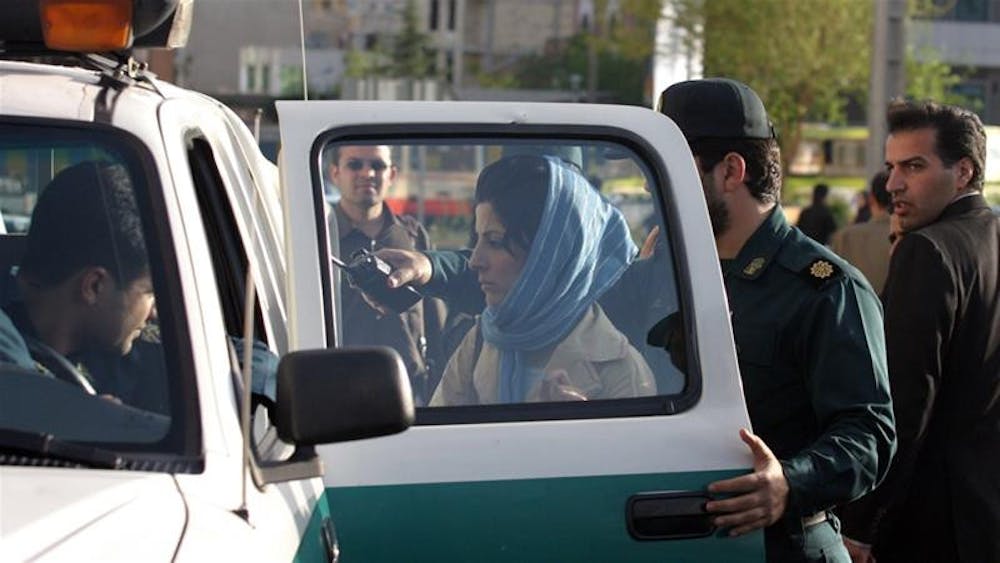By Megan Mayernik
Correspondent
Iranian police arrested 29 women on Jan. 31 for protesting an Iranian law that requires all women to wear a hijab, a traditional Islamic veil.

Women across the country have protested the law for nearly four decades, but a new wave of outcry across the country is drawing more attention than ever to the outcry and has sparked a personal freedoms debate in Iran, according to The Guardian.
Protests against the law are steadily gaining momentum. Eyewitness accounts describe over two dozen women ripping off their hijabs in protest, according to The New York Times.
One proponent of the protest movement is Masih Alinejad, an Iranian activist based in the U.S. Alinejad has called on the women of Iran to engage in a movement called “White Wednesdays,” in which participating women will wear all white, remove their veils and place them at the end of sticks to wave them around like flags, according to The New York Times.
In the past, women who allowed their hijabs to slip were often reprimanded by Iranian religious police, yet under the moderate President Hassan Rouhani, rules on hijabs have become more relaxed, according to CNN.
Easing the enforcement of this law in Iran has empowered younger women to be more defiant in protesting for their freedoms. Despite the looser enforcement of the law, the 29 protesters who deliberately removed and waved their hijabs were imprisoned, according to The New York Times.
Vida Movahed, a 31-year-old Iranian activist, attracted global attention following her arrest in December, after an internet video of her protesting the compulsory veiling law by waving her hijab from the end of a pole went viral, according to CNN.
Soheila Jolodarzadeh, a female member of Iranian Parliament, explained that the protests were the result of longstanding and unnecessary government restrictions of personal freedoms, according to The Guardian.
“We imposed restrictions on women and put them under unnecessary restrains. This is why...girls of Enghelab Street are putting their headscarves on a stick,” Jolodarzadeh said, according to The Guardian.
The demonstrations compounded the disagreement between President Rouhani and Iranian conservative religious leaders, according to The New York Times.
Rouhani sided with the demonstrators, insisting that they had a right to speak out and stated, “One cannot force one’s lifestyle on the future generations.”
The Trump administration praised the protesters on Feb. 2, according to The New York Times. The involvement and support from the U.S. along with Rouhani’s backing indicate a hopeful future for the expansion of freedoms for Iranian women.
“People should be free to choose the clothes they wear, and practice their faith as they desire,” said State Department spokeswoman Heather Nauert, according to The New York Times.







